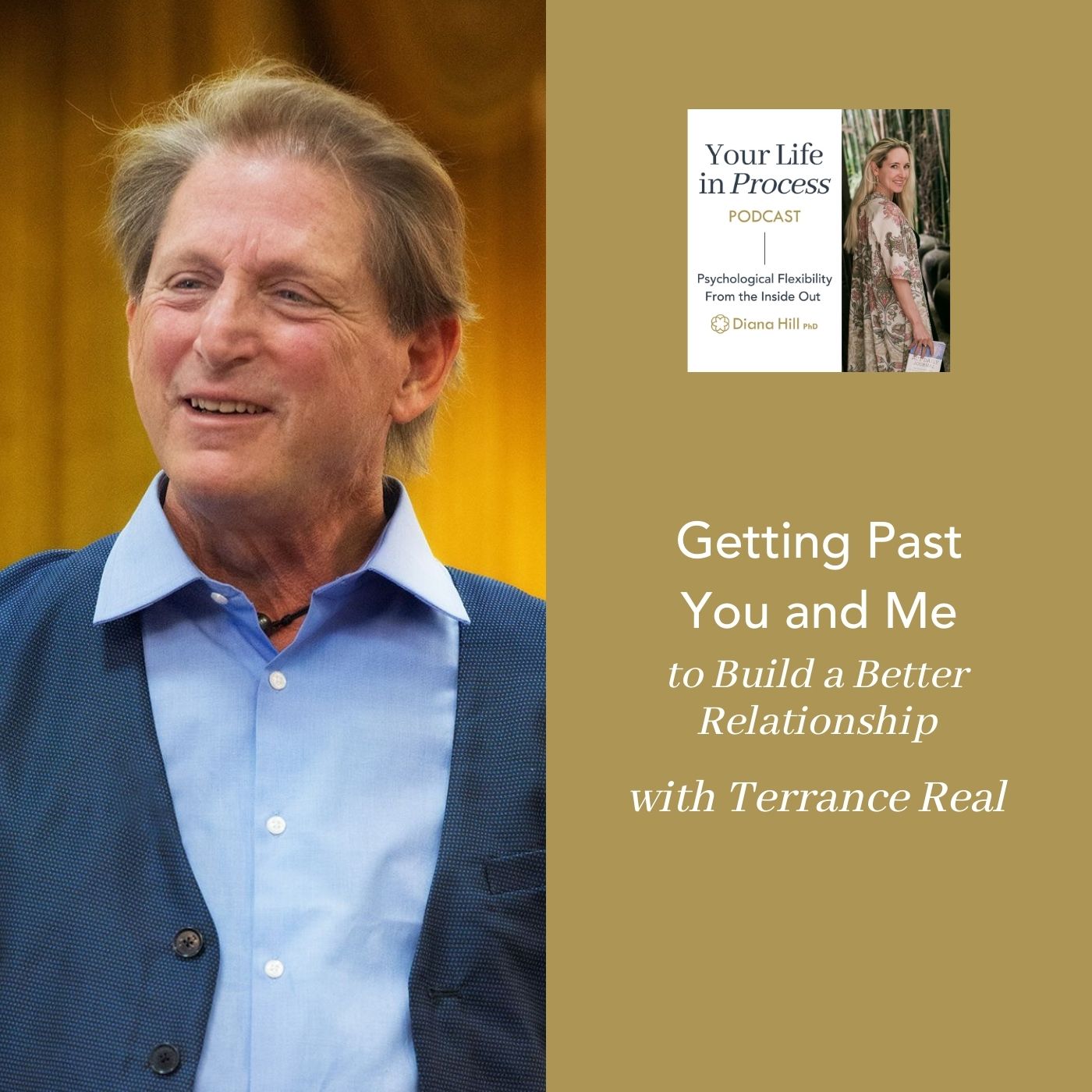Long-term relationships and healthy marriages take work. Being right, trying to change your partner, attacking, or withdrawing can unravel your relationship over time. In this episode, expert couples therapist and author Terrance Real teaches us how to step out of toxic patriarchy and rugged individualism so that we can step into more loving, intimate, and connected long-term relationships. Terry Real offers practical skills you can apply to your relationship right away, and Diana Hill shares some of the successes and stuck points of her own marriage. You won’t want to miss the insight, communication skills, and practical wisdom in this episode, and you will want your partner to listen too!
About Terrance Real
Terrence Real is an internationally recognized family therapist, speaker, and author. He founded the Relational Life Institute, offering workshops for couples, individuals, and parents along with a professional training program for clinicians to learn his Relational Life Therapy methodology. In addition to US: Getting Past You & Me to Build a More Loving Relationship, he is the bestselling author of I Don’t Want to Talk About It, How Can I Get Through to You?, and The New Rules of Marriage.
Key Takeaways
- Many men have difficulty with connecting because they were socialized to not be emotionally vulnerable
- Loving confrontation involves confronting the pattern in your relationship that is keeping you from connecting including being right, condemning your partner, dumping on your partner, retaliating or withdrawing
- Learning about your adaptive child and your partner’s adaptive child can help increase compassion for each other and help you step out of maladaptive patterns
- When you see your relationship as an ecosystem, you recognize that the goal isn’t to be right or control your partner but to work together
- Communication skills are central to long-term relationships, and sometimes we need direct coaching from a therapist or our partner to be more effective at communicating
- Objective reality has no place in relationships. What is more important is understanding your partner’s reality.
Related Resources
- Download Your Daily Practice for this episode
- Find out what kind of Striver you are and get your free Skillful Striving Toolkit
- Watch Diana Hill and Terrance Real on YouTube!
- Learn more about Relational Life Therapy
- Learn more about Terry Real
- Are you a therapist and want to train in Relational Life Therapy? Check this out.
- Read Us: Getting Past You And Me To Build a Better Relationship
Diana’s Events
- Reserve your spot in Diana’s Reset and Restore Retreat in Costa Rica in 2023!
- Sign up for Diana’s From Striving to Thriving Summit!
- See Diana at an upcoming event
Connecting With Diana
Thank you for listening to Your Life in Process! Subscribe to the podcast for free on Apple Podcasts, Spotify, Google Podcasts. If you have any questions or feedback you can contact Diana by email podcast at yourlifeinprocess dot com or leave Diana an audio message at (805) 457-2776. Follow Diana at YouTube, Instagram, LinkedIn, Facebook, and Diana’s website.
Thank you to the team Craig, Angela Stubbs, Ashley Hiatt, and Abby Diehl. Thank you to Benjamin Gould of Bell & Branch for your beautiful music.
Remember when you become psychologically flexible, you become free.
Episode Segments
- [00:04] Introduction
- [01:37] About Terrance Real
- [02:17] Sponsor: Lightfully Behavioral Health
- [03:22] Moving Beyond Patriarchy and Individualism in Couples
- [07:48] Why Men Have Difficulty With Vulnerability
- [09:20] Three Phases Of Relational Life Therapy
- [12:06] The Relationship Is An Ecosystem
- [15:08] The Wise Adult and The Adaptive Child
- [18:10] What Was Adaptive Then Might Be Maladaptive Now
- [20:36] The Neurobiology Of Relationships
- [22:45] Formulating The More The More Pattern
- [26:19] Five Losing Strategies In Relationships
- [28:12] A Case Study On The Adaptive Child
- [32:20] Corrective Emotional Experiences Within Couples
- [34:13] Core Relationship Skills
- [36:45] How To Repair In Relationship
- [37:29] Objective Reality Has No Place In Personal Relationships
- [38:47] The Golden Repair Question
- [42:05] Three Phases Of Getting What You Want In A Relationship
- [44:13] What Do You Do When One Partner Is Not All In?
- [46:25] Power Dynamics In The Therapy Room
- [49:47] Healthy Self-Esteem
- [52:53] Favorite Lines
- [53:20] Your Daily Practice
- [57:15] Connect With The Podcast

+ show comments
- Hide Comments
add a comment